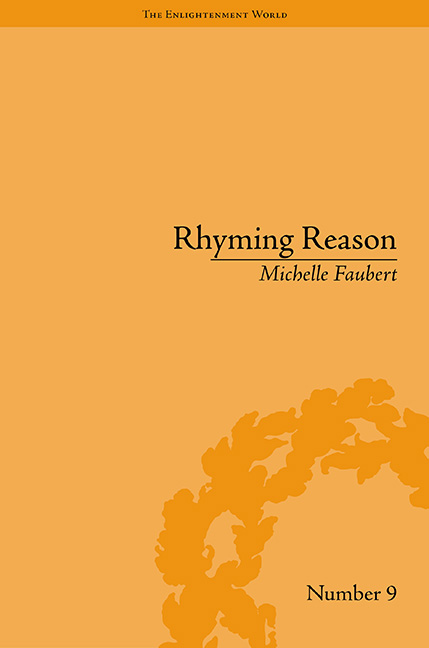Book contents
- Frontmatter
- CONTENTS
- Dedication
- Acknowledgements
- Preface: Psychologist-Poets, Disciplinary Power and the Modern Subject
- Introduction: Romantic-Era Psychologist-Poets and the Historical Context of Early British Psychology
- 1 Erasmus Darwin, James Beattie and Nathaniel Cotton as Pre-Romantic Psychologist-Poets
- 2 The Human Touch: Thomas Bakewell, Andrew Duncan Sr, John Ferriar and Moral Management
- 3 Thomas Trotter, William Perfect and Thomas Beddoes: Nervous Illness and Social Hygiene
- 4 The Unelected Legislator: Associationism and Thomas Brown's Subliminal Poetic Lessons
- Conclusion: Thomas Forster, Phrenology and the Reification of the Disciplines
- Notes
- Works Cited
- Index
4 - The Unelected Legislator: Associationism and Thomas Brown's Subliminal Poetic Lessons
- Frontmatter
- CONTENTS
- Dedication
- Acknowledgements
- Preface: Psychologist-Poets, Disciplinary Power and the Modern Subject
- Introduction: Romantic-Era Psychologist-Poets and the Historical Context of Early British Psychology
- 1 Erasmus Darwin, James Beattie and Nathaniel Cotton as Pre-Romantic Psychologist-Poets
- 2 The Human Touch: Thomas Bakewell, Andrew Duncan Sr, John Ferriar and Moral Management
- 3 Thomas Trotter, William Perfect and Thomas Beddoes: Nervous Illness and Social Hygiene
- 4 The Unelected Legislator: Associationism and Thomas Brown's Subliminal Poetic Lessons
- Conclusion: Thomas Forster, Phrenology and the Reification of the Disciplines
- Notes
- Works Cited
- Index
Summary
Brown's poetry is so voluminous – he published seven volumes of verse – and his psychological approach is so complex and influential that he warrants a chapter of his own. He also stands out from the other psychologist-poets described in this study because he states most clearly how and why he uses verse for associationist purposes. In Lectures on the Philosophy of the Human Mind, the Professor of Moral Philosophy at Edinburgh University delineated his associationist psychological theories, which many viewed as threatening to the Christian concept of free will. Significantly, he also applied associationist principles to his literary theorizing and attempted to practise versified psychology that appears, frighteningly, to be a kind of mind-control. As his psychological prose and poetic prefaces reveal, Brown believed that the psychologist-poet understands the reader better than the reader understands herself, which enables him to use the special qualities of verse to implant his message into the reader's mind. This message is a moral one that confirms the socially governing and Christian roots of psychology and links Brown's verse to that of Cotton and Beattie, most obviously, but also to that of all of the psychologist-poets whom I have examined here, since I have shown that, in their ways, moral management and nerve theory also governed society by providing rules for morality. More specifically with reference to Brown's poetry, he shows that the associationist-poet can encourage the reader to follow his ethical directions without even appearing to give advice. Although this autocratic use of psychology in verse may be alarming, it is not a perversion of the principles of associationism. It is, rather, an apt application of its principles, as I will illustrate with reference to the writings of Hartley and Stewart, as well as Brown's own. Brown may seem to differ from his fellow psychologist-poets in his overtly tyrannical sentiments, but, as I will illustrate, he is the paramount example of the psychologist who leads society through verse because he seizes upon the unique qualities of poetry that are amenable to the deployment of his associationist programme.
- Type
- Chapter
- Information
- Rhyming ReasonThe Poetry of Romantic-Era Psychologists, pp. 161 - 182Publisher: Pickering & ChattoFirst published in: 2014



